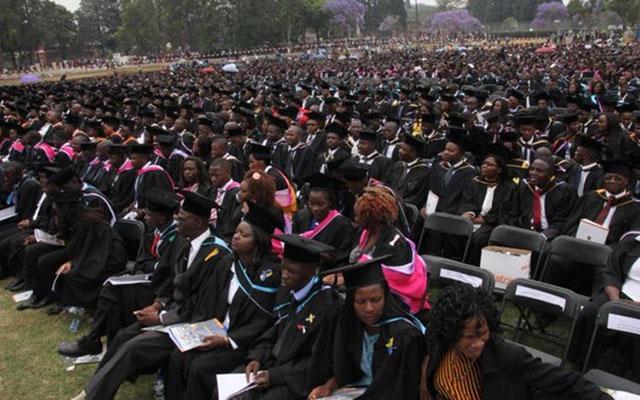President committed to improving tertiary education

Tendai Guta Correspondent
The new administration led by President Mnangagwa is highly committed to improving the education sector and has pledged to address concerns of teachers and improve their welfare. Among the notable achievements the new dispensation has registered so far is reviewing the new education curriculum following public outcry that it requires a lot of resources, which the country currently does not have, it has reduced tuition fees for students on industrial attachment and teaching practice, continues to feed children under the schools feeding programme as well as constructing schools countrywide to improve the quality of education.
Parents and students applauded Government for its decision that all Higher and Tertiary Education students on industrial attachment and teaching practice will now pay 60 percent of tuition fees with immediate effect. Announcing the news in a Press statement on March 7, 2018, the permanent secretary in the Ministry of Higher and Tertiary Education, Science and Technology Development, Desire Mutize Sibanda, said the new policy abolishes Circular No. 6 of 1997, which required students on attachment to pay full tuition fees.
In the Press statement, Mr Sibanda noted that Government took the decision after careful consideration of the economic environment and the plight of the majority of students. Students on attachment need money for accommodation, food and transport to and from work. Sibanda also said the ministry had considered the variable and fixed costs attendant to students’ supervision and utilisation of teaching and teaming facilities.
Government is also committed to promoting inclusive and quality education in line with Sustainable Development Goals Number 4 of Vision 2030.
Addressing lecturers and officials at the Chinhoyi University of Technology (CUT) some weeks ago, Higher Education, Science and Technology Development Minister Professor Amon Murwira said ZIMDEF was now expected to support an intensive STEM teacher-training programme, offer students on attachment allowances and promote innovation hubs, among others.
He said Government would support an intensive teachers’ training programme and Mkoba Teachers’ College, Joshua Mqabuko Nkomo Technical College and Masvingo Teachers’ College, which were training primary school teachers must start training secondary teachers of STEM and enhance their laboratories from ZIMDEF. Prof Murwira acknowledged that students on attachment faced various challenges, including paying for their bus fares. He noted that his ministry would try and find out if it could give students assistance when they are on attachment.
The new dispensation has pledged to review and address shortcomings in the new education curriculum following public outcry that it was wrongly timed as the ministry has no resources, both human and material, to implement it. To show its commitment, Government has already suspended continuous assessment for O-Level and A-Level pupils that was meant to start this year.
Zimbabwe Teachers’ Association (Zimta) applauded Government for taking advice proffered by parents and teachers and other relevant stakeholders that some aspects of the new curriculum needed to be reviewed before full implementation.
The new education framework for O-Level and A-Level says learners’ grades will be based on 40 percent theoretical examinations, 30 percent practical and 30 percent continuous assessment.
Teachers are also set to benefit from a new national command housing scheme meant for civil servants to be launched soon by President Mnangagwa. Government intends to roll out a massive command housing scheme where 420 000 units are going to be constructed, 230 000 of them to benefit civil servants.
Under the new housing scheme, beneficiaries will start paying upon occupying finished houses compared to previous schemes, which required cash upfront of $150 before the construction of the houses.
Government through the Ministry of Primary and Secondary Education is working on a legislative framework to allow private investors to partner Government in building schools across the country.
Minister of Primary and Secondary education, Professor Paul Mavima said that after putting in place the necessary legislation, Government was aiming to build 100 schools in the second half of the year.
He revealed that Government had a deficit of over 2 000 schools and had decided to push for the legislation to build and develop schools through public private partnerships. By the second half we expect to have 100 schools.
The Government continues to uphold self-sustaining school feeding programme with the involvement of the community. Recently the nation hosted the third Africa Day of School Feeding commemorations at Glen View 2 Primary School in Harare where several delegates from the continent attended.
The event, held under the theme “Rising African Child full Potential Through Effective Home Grown School Feeding”, presented an opportunity for the 54 African countries, partners and experts to share best practices on home grown school feeding.
Prof Mavima said the ministry was committed to its mandate of providing equitable access to quality inclusive education to all learners and feeding programme was part of it.










Comments